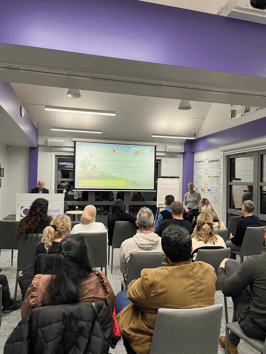
Dentists don't really kill people when they get the shade of the crowns that they make wrong.
People don't die if you're implant is a millimetre off-line or off-angle.
Nobody's health is dramatically affected if you don't quite perfectly clean their teeth or if their occlusion is slightly wry.
Society, though, still believes (at least in places) that dentists are part of the healthcare community.
For what it's worth, I absolutely believe that dentistry is a subspecialty of medicine, but that is an opinion that is held less and less through our profession overall.
As a result, though, of this persisting feeling that we are part of a greater community as healthcare professionals, we are bound to train in CPR at least yearly (but what should be more often than that) to make sure that if an opportunity arises to save a patient's life in front of us, then we are at least partially equipped to be able to do that.
We're also expected to be well versed in the diagnosis of oral cancer, another opportunity, perhaps, to save someone's life through early diagnosis.
And so, with that in mind, we had one of our peer review meetings at The Campbell Academy last night, where we were lucky enough to welcome something in the region of 30 to 35 people, which is a decent audience for us at these evening study clubs, where it's hard to come out when it's dark and raining.
It wasn't an evening on whitening, though, or treatment co-ordination to try to encourage more patients to have clear aligner treatment to straighten their teeth (which again is unlikely to save their lives); it was an evening on Suicide prevention.
It was a lecture by John Gibson, Professor, Doctor John Gibson, one of the greatest mentors in my career over the past 30 years.
From now on, he will forever be known in our practice as 'Little John' after Nancy saw him before she met him and thought he was taller, but that is a side story to the main event.
If you're unaware of John's story, at least the story of his last four years completely centres around the loss of his son Cameron, who died by suicide in October 2019.
That was essentially the basis for the lecture last night, but also the charity that John and his wife have founded called The Canmore Trust in memory of Cameron, but also moving forward to help as many people as possible.
John spoke for almost 90 minutes last night, and I sat at the back of the room deliberately.
You could have heard a pin drop through the whole of the evening, and I think nobody was not utterly affected by what they heard and what they saw.
I can't possibly summarise or go into detail about everything that was covered in that lecture, but what I can tell you is that John's basis of academic medical science around suicide and their aspirations to provide research into areas of suicide which have been overlooked is the most extraordinary potential legacy through the tragedy and the trauma that his family has suffered.
The real take-home lesson, though, is this:
1) We have the privilege to be healthcare professionals.
2) If we are called into action (like a soldier being called to war), it is our responsibility to answer.
3) If we see someone in front of us whom we are concerned about, be it a patient, family member, friend or colleague, the question is this: "Are you thinking about killing yourself?"
It's essential that we understand that there is no other question; it's not "Are you having dark thoughts?" it's not "Are you thinking about death?".
It's clear and direct: "Are you thinking about killing yourself?"
If the answer to that is yes, we are automatically responsible for that patient's life, and we must do whatever we can to take them to a safe place.
The safe place would usually be an accident and emergency, and yes, we may have to sit there for a considerable period of time with an individual who is at the lowest possible part of their life cycle.
And yes, we might leave patients behind in our practice, or yes, we might miss a night out with friends, or yes, we might inconvenience ourselves further in different ways.
But what price is saving a life?
As John so rightly stated last night, we train and train in CPR, we train and train in oral cancer, but almost 5500 people died by suicide in the United Kingdom in 2022, and 75% of those were men under the age of 35.
It's time that we did more than this.
It's time that we were better.
It's time that we were healthcare.
Blog Post Number - 3725





Leave a comment